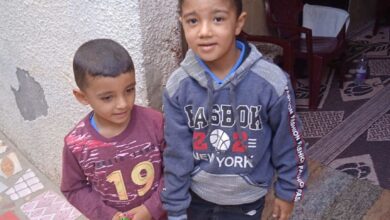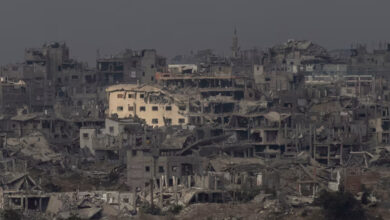Some have called Egypt’s revolution "the Comical Revolution" because of the jokes and satirical slogans used by Egyptians, well known for their sense of humor, to express their revolutionary demands. This lightheartedness made it easy for people to become emotionally attached to the revolution and the sincerity of its intentions. But it has also provided a new vocabulary of terms that can fit into the lexicons of any past or future revolutions.
One term that caught my attention most was “Couch Party,” which Egyptian revolutionaries use to describe people who stay at home during protests and other actions, instead watching the revolution through their televisions. The Couch Party is known for criticizing the people on the street who work to bring about change.
This party is not exclusive to Egypt. It is very popular here in Palestine, as well. In fact, the Couch Party is one of the largest and most influential parties we have.
This is not to take away from the honorable periods of struggle and steadfastness of our people throughout time. The cases of Egypt and Palestine are not identical, but at this moment time has brought them closer together.
The lack of active participation on behalf of the Palestinian people is apparent to those who follow the Palestinian street and it extends to all social and political issues, from the internal problems like divisions and corruption to external problems like the occupation and settlers.
The apparent apathy of the people evidences their frustration and distrust, with the exception of the Palestinian activists who day after day prove that despite their small numbers they are capable of doing much. The latest example is the successful shutdown of the Israeli-Palestinian Confederation conference in Jerusalem, Bethlehem and Haifa after dozens of activists organized a protest denouncing it.
I see four main reasons behind the emergence of the Couch Party in Palestine, which appeared in the early 1990s with the start of the Oslo phase:
1. The Palestinian leadership has failed to deliver on its promises liberate the Palestinian people from the occupation. This led to a lack of confidence in the current non-elected leadership, which has no legitimacy and disillusionment with its approach for the past 20 years of negotiating without achieving even the simplest results for the Palestinian people.
2. Economic dependency on the occupying state and the financial policies of our Palestinian governments has created an affluent segment of society whose interests lie in the political status quo. Meanwhile, the only concern of the poor is how to make a living, regardless of the political situation.
3. Regardless of the Palestinian leadership, there is no unified national vision that the Palestinian people can rally around.
4. Internal conflict, divisions and political parties’ rivalry have led the Palestinian people to become reluctant to participate in political life.
We must not forget that our people have sacrificed much since the occupation of our land in 1948 and that several uprisings erupted, in which hundreds of thousands of Palestinians were martyred, wounded or imprisoned. Therefore, it is only natural that they pass through a period of exhaustion and fail to rise until a new generation arrives to complete the work of the previous generation.
One of the challenges we face as activists on the ground is the number of people participating in events we organize. We understand the importance of mobilizing the people for our events, but we do not allow small turnouts to become a reason to step back or to surrender.
Furthermore, with every action we take, Palestinian activists are faced with diverse and contradicting views, some encouraging and positive and others frustrating and negative. I refer here to the role of the Palestinian Couch Party, and specifically the youth who have the political awareness, knowledge and culture that allows them to realize that the current phase is one of change and that requires people to join those on the street rather than blaming and criticizing those fighting the battle, whether successful or not. This will help them learn the meaning of sacrifice and perseverance as well as the meanings of gain, loss, freedom, justice and dignity.
The solution lies in reducing the number of Couch Party members and converting their negative role into a positive one. This can be achieved in two phases.
In the first phase, activists need to spread their ideas and convince the Couch Party that the current period is an opportunity for accomplishments, even if they simple ones. This will form the foundation for a coming phase, which may begin at any moment when the Palestinian people free themselves from their current constraints and rid themselves of their captor.
First, we must set a strategy for this phase with common goals in order to begin convincing people of this strategy and our vision. We must also prove how important our presence on the ground is and demonstrate that we refuse the status quo.
This is to be followed by spreading out and integrating into all factions of society, from the cities to the villages to the refugee camps, from Gaza and the West Bank to the “1948 lands,” and further, to the camps and communities in other countries.
The second phase of the solution lies in the Palestinian people themselves and in particular the intellectuals, who must work to exclude anyone who tries to treat us as if we are a mob in need of a sponsor to control us and undermine our freedom to serve his own factional interests, while supposedly working in the name of national interest. The Palestinian people and intellectuals should not remain silent in the face of those violating our human rights, whether from our leadership or occupiers.
My advice to members of the Couch Party is this: Get rid of your couches or remain as silent spectators, for the Palestinian people are not accustomed to sitting on couches.
Zaid Shuaibi is a Palestinian political youth activist and outreach coordinator for the Boycott ,Divestment, Sanctions movement against Israel.




